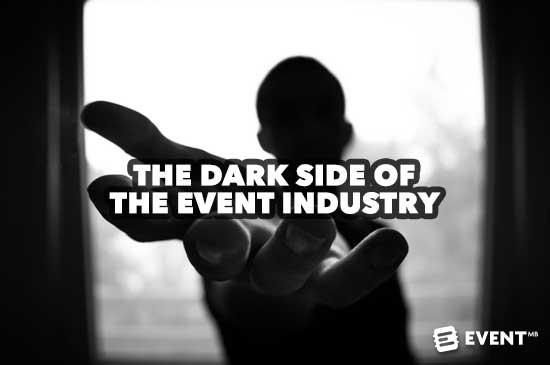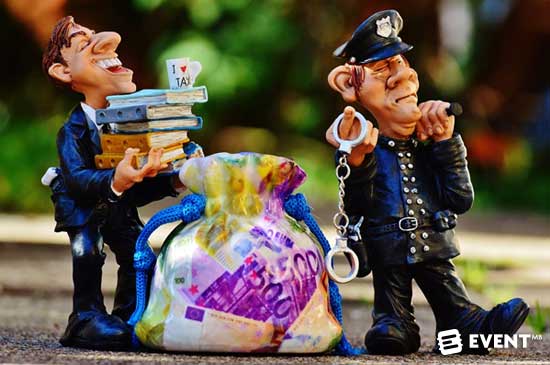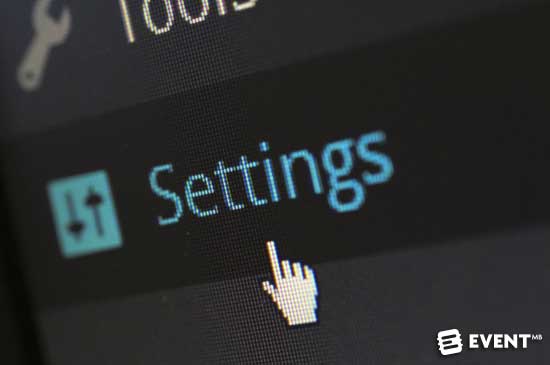Skift Take
The events industry - an exciting, vibrant community that we adore working in (most of the time at least!). But there is also a dark side too. Here are 19 unsavoury elements of the world of events and what we can do to make it better.
Researching this post has been a true eye opener. The scams, unethical behaviour and destruction which is present in the industry we love so much, impacts on us all. These 19 scenarios vary in severity and impact but we can’t bury our heads in the sand and pretend these things don’t happen. Event planners beware!
Don’t be naive or get caught out. Educate yourself on some of these unsavoury practices to ensure that you are not a victim and can hopefully take steps to stop this happening to you. Be aware of the dangers present and help to stamp it out. Let’s work together to unite and keep the industry fair, honest, professional and even better than it is today. Let’s work together to keep the event industry great.
##abovethefold##
Ripping Off Content
Blog posts, presentations, catchphrases, reports, research stats, infographics – as soon as something (anything!) is in the public domain it often seems that others are waiting, eager to rip off the content you have lovingly created. Of course no one owns the English language and some hot topics are on the minds of everyone in the industry, but if something has blatantly been copied and pasted this is copyright infringement and will be discovered and noted. And don’t think that changing the odd word, picture or title is enough either. Sigh.
We have even heard tales of an event industry veteran attending an event seminar where the speaker had their colleague’s Powerpoint slides and was using it for his presentation. And countless other examples of session titles and descriptions being stolen, or event planners pitching a session idea only to find out later on that someone else presenting the very same session you suggested.
Imitation is the highest form of flattery they say. Perhaps it is. Nevertheless it is downright unprofessional. Be original or get out of the fast lane!
What Can Event Planners Do About It?
This is becoming so commonplace we need to start calling out this “flattery”. Is is NOT OK to steal or rip off someone else’s content or work. Be vigilant and notify others if you notice any copyright infringements and raise it with the person responsible to ask them to stop or take it down. There are calls for a CMP Ethics Board or Event Industry Body to be established that could fully investigate such plagiarism.
If you want to reference someone else’s content then please act fairly and credit it. Likewise on your blog, reports and other content, clearly set out your copyright restrictions or creative commons attribution to avoid any “misunderstanding”.
Poaching Staff
Your competition will often keep an eye on your event team, but sometimes they will directly approach your employees to entice them to move to their own organization. It is understandable to want to have the best staff, but sometimes competitors can have an ulterior motive, such as accessing client relationships and getting insight into your company or undermining your company’s position in the industry. Depending on where you operate there can be legal implications which anyone poaching staff needs to consider, to make sure they are operating on the right side of the law.
What Can Event Planners Do About It?
To avoid your staff getting poached there are a few measures you can put in place. Make sure all your employees have signed non-compete contracts, which prevents them from going to work for a competitor for several months (or longer) within a specific geographical area. Also consider increasing the length of notice period they must give. Encourage staff to stay, not only by paying them in line with similar roles, but also by creating a workplace and culture that makes them want to stick around.
From the other side – if you are looking to poach someone from a competitor make sure everything is done correctly and that you are not in breach of the employee’s contract. Operating through a headhunter can distance yourself from the approach and ensure that things are done in the right way.
Stealing Event Ideas
In 2015, we launched a new exhibition, the first ever in the UK for a specific target market. We had been working together with our clients for well over two years to bring the event to market. Soon after the success of the first exhibition the event was copied. This is something we have been aware of before but the scale of this theft was truly astounding and shocking. Not only was the idea copied, the whole branding and ethos of the event was stolen. They used almost the same title for the event (just changing Expo to Show), the website looked identical, they copied the logo, videos, branding, content, exhibitor packages, zones, and everything imaginable.
Knowing that our clients were focused on growing a London event alongside the Midlands/Northern exhibition (plans were announced publicly) the rival exhibition started work on a London show and targeted all of our exhibitors, purposely misleading and confusing them so in many cases the companies thought that they were actually signing up to our London version of the Expo.
Our third year of the Expo is fast approaching and our competition have run two copycat events. Despite being challenged, their unscrupulous approach has not changed. Trademarks and legal battles are the only thing that can challenge this situation. And there is certainly plenty of evidence of wrongdoing to present a great case should our clients wish to pursue it through the courts. Currently though, the time, money and energy this would take is firmly focused on developing the Expo and the many further ideas the Directors have.
What Can Event Planners Do About It?
Trademark your logo and event name to protect it and register it as a company name. If you have invented a product get it patented (expensive but necessary). If you can, also purchase the domain names for similar variations on the event name that you would like to block. Then always move fast. Be prepared for a lengthy court case to challenge the theft of intellectual property.
Poaching Clients
The event industry is people focused and event planners work hard to attract clients, develop long term relationships and keep their loyalty, so losing a client can be a massive blow. Whilst many event planners feel that there is plenty of work to go round for good event planners and would never dream of purposefully targeting the clients of rivals in the industry, others have no such scruples and see this as “the cut-throat world of business”.
What Can Event Planners Do About It?
The best way to avoid a competitor stealing your clients is to ensure you always over deliver and exceed expectations. If your clients are constantly delighted with the service you provide a targeted approach or under cutting by a competitor is less likely to entice them to move.
To avoid ex-employees stealing your clients make sure that their employment contract includes restrictive covenants on client poaching and be prepared to take action against it.
And of course be prepared to welcome back any clients that are tempted to move away when they realise that the grass isn’t always greener!
Bad Mouthing Competitors
As tempting as it may be to gloat and share in the mis-steps of your competition, it can make you look very bitchy, which probably isn’t the image you want to put across. It can be tantalising to hear all the gory details – but resist and keep your integrity.
What Can Event Planners Do About It?
In the same way that aggressively targeting your competitors clients can be seen as unprofessional, also avoid bad mouthing others in the industry. Don’t get drawn into negative conversations or spreading gossip. You wouldn’t like to be on the receiving end of such comments or slander so distance yourself from tittle-tattle. And of course, you never know who knows who and if the details are actually correct. It is a small world if you work in the event industry.
Timewasting
It can take hours and hours to create a winning proposal or tender for a new piece of work. Understandably it can be incredibly frustrating to then find out that it was simply a box checking exercise and that you never stood a chance in the first place, as the job had already been awarded.
What Can Event Planners Do About It?
If you are interested in pitching for some work always try to have a direct conversation with the person inviting proposals and clarify any questions you have. Sometimes this may be enough to determine the likelihood of success and decide if it is worth your time investment. Unfortunately though often you just need to take a punt at it – after all “you have to be in it, to win it”.
To minimize the time spent on speculative proposals and tenders, develop templates and relevant information and keep them up to date, ready to create RFPs without having to start from scratch each time. It is much easier to adapt a document rather than starting from an empty page.
No Shows
One thing that infuriates event planners are those that RSVP but then never actually show up. There is no precise calculation in terms of the number of people who drop out without sending apologies, which means you can sometimes over or under cater for your event. A high number of no shows means a waste of money and is also wasteful in terms of food, beverage and other related items. This is frustrating all round, particularly if your event budget was already at bursting point.
It can be disappointing or devastating for your client not to get the numbers and it can even ruin the photos seeing empty seats or an empty space. Amazingly attendees sometimes have no understanding that their place at the event still has to be paid for, even if they decide not to bother. Grrrrr!
What Can Event Planners Do About It?
Although there is no perfect solution to this, there are lots of things that you can do to reduce no shows. Here are 50 Pro Tips to Avoid Non Attendance at your Event.
Scammer Attendees
Whether it is a gatecrasher taking advantage of the free bar, someone attending a conference without a ticket or a bogus event planner attending a familiarisation trip, these issues are real. Recently an industry blacklist was circulated listing 31 individuals who are named and shamed as serial offenders.
What Can Event Planners Do About It?
The best way to ensure that the right people are at your event is to have a targeted, validated invitation list or a stringent process to check that only the right people are coming along. A great and simple way to avoid the free-riders is to not offer an unlimited free bar. Instead have a cash bar or limit it to one welcome drink and make sure that this is clear within the event information to put off freeloaders.
If you run into any issues you probably want to keep a company blacklist of those that are not welcome at your future events. This may or may not include those guilty of serial non attendance too.
False Complaints to Get Money Back
Believe it or not, the customer isn’t always right. We live in a claim culture and social media means that customers demand instant responses and action. Nowadays some individuals realise that by complaining and kicking up a fuss they can often get discounts or rewards from busy event planners who just want to make the problem disappear.
What Can Event Planners Do About It?
It is important that you handle a complaint at your event sensitively. First of all, you need to establish whether the complaint was founded, so make sure that you hear the full facts before making a decision. If you feel that the complaint is ungrounded or motivated for the wrong reasons then stand your ground. Agreeing money back or some other form of compensation should only be offered if you believe this is the right course of action.
Unsafe Hours
Event planners aren’t shy of putting the hours in but if you are consistently putting in an 80+ hour working week you probably want to rethink to avoid burnout and long term damage to your health. Care also needs to be taken if you are operating machinery or driving when tired. After a long hard event day, or an early start or late finish, ensure that you are in the right frame of mind to operate or drive safely.
What Can Event Planners Do About It?
Don’t endanger yourself or others. Book an extra night’s accommodation after your event, have a pit stop and take a break if you have any doubts about your alertness and ability to function safely. The last thing you want is to endanger yourself or others.
Stress and Pressure
You don’t need us to tell you that you work in a pressured environment. A little bit of stress can sometimes be good in terms of performance and adrenaline but too much stress over a sustained period can be damaging and should be avoided.
What Can Event Planners Do About It?
Of course, it can be easier said than done but try to achieve some work-life balance and work on daily habits to relieve event planner stress.
Backhanders and Illegal Payments
Two global mega-events, The World Cup and the Olympics, are being investigated for bribery and irregular payments. Politicians, officials and businessmen are in jail. The repercussions from the Rio Olympics are far reaching, with the Brazil economy ruined and in deep recession, and 13 million unemployed.
Of course on a more local level (and with less zeros involved!) suppliers have been known to receive a “brown envelope” to sway their decision and venues have sometimes shunted other contracted events when given an “incentive” or “sweetener”. Hmmmm.
What Can Event Planners Do About It?
You might not be involved in global events on the same scale but corruption is possible at every level. Speak out and report it if this is something you discover.
Event Industry Scams
A common scam aimed at businesses is the overpayment scam. Typically an order is placed and a cheque sent and then, as the payment is clearing, contact is made to request an urgent refund due to overpayment, a miscalculation, or a request to cancel the order completely. Keen to impress a new customer with great customer service the refund is processed, only for the original payment to then bounce. An event photographer experienced a variation on this scam with a BACs transfer, which resulted in their company bank account being frozen and getting tangled up with fraud and money laundering investigations.
Another event industry scam is misleading directory services offered to exhibitors. Exhibitors are targeted by companies claiming to be, or to work for a trade fair. Using the event branding they encourage exhibitors to sign a form for advertising in a directory, which then ties them into a costly agreement.
What Can Event Planners Do About It?
If something looks too good to be true, it probably is! Be sure to verify some details before you spend any time on bogus requests. Visit the website, do some searches, call the phone number and ensure the email address is a company address and not a free personal email account such as gmail.
Also warn your exhibitors to be vigilant if approached about directory services or accommodation (see below). The best approach is to ignore these opportunities and any correspondence completely otherwise it is verifying your existence. Sometimes they may threaten legal action or even a debt recovery agency. Report them to your bank and trading standards.
Room Block Poaching and Piracy
Room block pirates or poachers target event attendees, often positioning themselves as the official housing bureau for the event. They claim that rooms are selling out quickly or offer enticing rates to encourage people to act quickly and share their credit card details. When the booking date approaches attendees sometimes find out they actually have no accommodation booked or are shunted to substandard, out of town accommodation. From the event organizers perspective room block piracy can then mean that they don’t fill their room block or other contractual obligations and can damage relationships with hotels, reputation and future contracting arrangements.
What Can Event Planners Do About It?
Be sure to communicate to your attendees the official and approved way of booking accommodation or to book directly with a hotel or recognized broker. Warn them about the risk of being targeting by room block pirates.
Bots and Illegal Ticketing Websites
When tickets sell out in a matter of minutes it can be down to ticket bots buying up tickets, to sell on at inflated prices on the ticket second market. Bots can act more quickly than humans ever can completing multiple online forms and snapping up more than the six ticket per person allocation.
What Can Event Planners Do About It?
The “Better Online Ticket Sales Act of 2016” or simply, the “BOTS Act” is legislation to combat ticket bots and place heavy fines on the perpetrators in the US. Alternatively consider offering named tickets only, pre-registration to apply for tickets, or requiring identification, such as ensuring that the card used to purchase tickets is also presented on entry. This discourages a tout from getting their hands on tickets and keeps the tickets with the true fans.
Chargeback Fraud
Chargeback fraud, otherwise known as friendly fraud, occurs when someone purchases an item on their credit card, receives the goods or service and then requests a chargeback from the issuing bank (the reversal of a prior outbound transfer of funds). The purchases can dispute a transaction with the bank rather than contacting the merchant for a refund. A recent study found 81% of cardholders have filed a chargeback out of convenience, to get a refund via their bank and more than 85% of these are fraudulent.
A real-life example of this in the event industry is an exhibitor making a card payment to cover the cost of their stand, attending an exhibition, having a very successful show, making lots of sales, and then requesting a chargeback, which the bank honored. In essence, this means that they made a small fortune from transactions taken at the event and didn’t pay for the privilege.
In addition to costing a merchant the amount of the sale, chargebacks can mean other fees and penalties, as well as the inconvenience and expenses related to fighting the disputed charge. All businesses that accept credit card payments are vulnerable to chargebacks.
What Can Event Planners Do About It?
It is possible for merchants to successfully dispute chargebacks and recover their funds, however you must be confident that you have enough evidence to dispute the claim and win the case. Issuing a refund is preferable to losing a chargeback dispute.
Hacking and Data Security
Data, especially credit card data, is worth a lot of money on the black market. Coachella and hotels have already been targeted by hackers.
What Can Event Planners Do About It?
Be sure to purchase the best security your budget allows. Ensure that all passwords are encrypted and that where possible, data should be depersonalized and detached from financial data. Lastly, and perhaps most importantly, if you no longer need the data, ensure that it is deleted. No security solution is 100% infallible, so it is important that you have insurance to cover the worst, should it happen. Here are 10 Ways to Secure your Event Data.
Death and Injury
No exact figures are available for the numbers of injuries and deaths from workers on event sites, as the numbers are generally listed under incidents at construction sites. They are however many tragic incidences at festival sites, particularly during the build and de-rig when machinery is often in use.
Deaths are also regularly reported at events. In his opening lecture to new undergraduates a university lecturer in event management at a UK institution talks about the likelihood of someone dying at an event you run during your working lifetime. You hope that this will never be something that you have to face up to but with the attendee numbers involved this is always a possibility, even based on a medical emergency, such as a cardiac arrest.
Consider also that 13% of festival deaths worldwide are caused by drugs and alcohol and there have been injuries and deaths at extreme sport events. Other event tragedies have occurred though involving multiple people, such as the stage collapse at the Indiana State Fair and the crowd crush at Fall’s Festival.
What Can Event Planners Do About It?
We have a duty of care to keep our workers, suppliers and attendees safe from harm. From working hard to educate and reduce drug deaths at festivals through to using reputable suppliers and ensuring health and safety procedures are respected and stringent.
Terrorism
In recent times events and mass gatherings have been targeted by terrorists looking to create maximum devastation, meaning that all event planners have to be continuously alert and consider new threats to event safety.
What Can Event Planners Do About It?
As much as it makes uncomfortable reading, event planners need to be aware of the threats and think about the unthinkable. Make sure that you read up on advice from top event safety and security experts so we have the best chance of keeping our attendees and staff safe.
In Conclusion
Every industry has some unsavoury elements and unscrupulous people on the lookout for opportunities. This sobering post aims to share some of the darker elements of the industry that we probably don’t discuss enough. By raising awareness, event planners across the world can unite and help to stamp out some of these issues, or at least minimize the damage and repercussions.
The event industry is great. Together let’s keep it that way!
Is there anything we have missed from the list? If so please comment below and share your experience and wisdom with event planners across the world.










